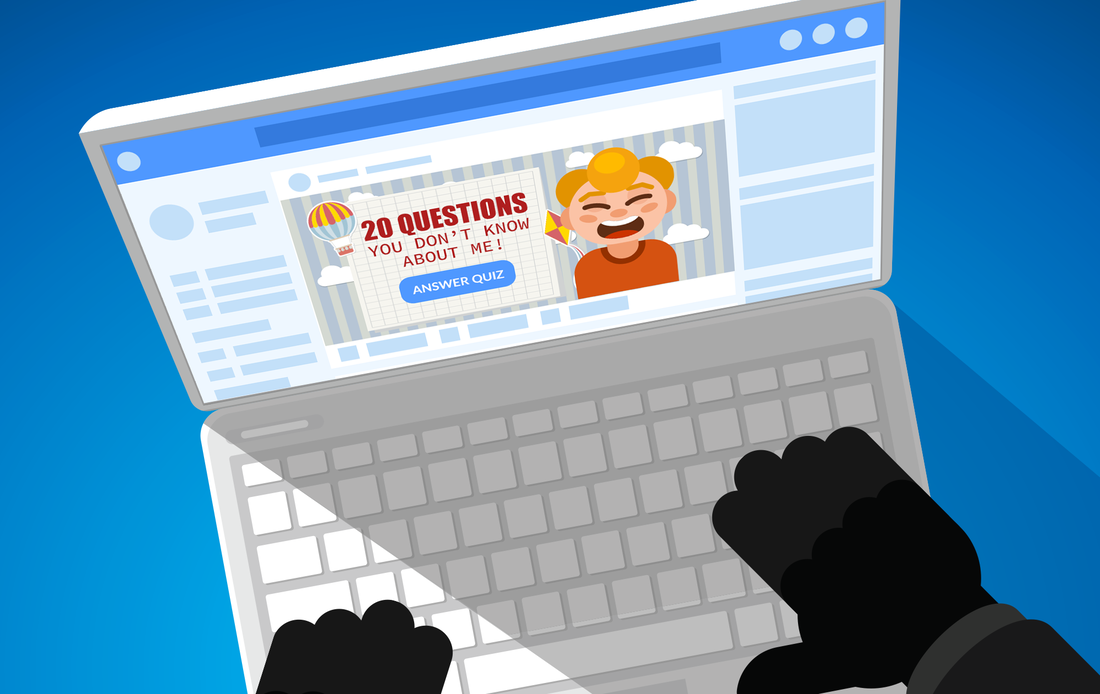A. Always fill it in! Of course, you want to know your celebrity alter ego or what your favorite food means about you.
B. Sometimes participate. Your friends have done it, so now you're curious about your results too.
C. Scroll on by. You don't want to risk security.
You don't need to be great at quizzes to guess which of these is the correct answer for your cyber safety.
Answering a "20 questions about me you never knew" or "15 questions about my childhood" survey may seem innocent, yet the people behind those questions could have ill intent. They're using a quiz format to gather the personal information they need to access your accounts. Think about it. Who else asks for your pets' names, your favorite color, the elementary school you attended, or your mother's maiden name? These are questions you'll see as password reset prompts.
When you do one of these personal surveys, you're encouraged to share your results. Doing so may be giving access to your answers to anyone on the internet.
Other quiz risks
Taking Facebook or Buzzfeed quizzes, even if not scams, can compromise your privacy. These online quizzes learn about you and your preferences. That data may be sold to third parties.
You might also have seen IQ tests on your social platforms. You know you've always wanted proof of how smart you are! But these tests can sometimes ask for your phone number before you receive your results. You won't be feeling so brilliant when you start getting all the junk texts and new charges on your cell phone bill.
What can you do?
If you do continue to take quizzes, take the following steps:
Only take quizzes on websites you trust.
Avoid quizzes that have you typing in custom answers. Multiple-choice questions are safer, as the answers are already written.
Read the fine print about how they use your data.
Think twice before sharing your contact information to get quiz results.
Be careful about posting your results on Facebook; check how much access you're giving that website.
If you're in the midst of a quiz and realize it could be a scam, take a screenshot and write down your answers. If you can delete the answers before submitting, do so. Also, record the name of the user who posted the quiz. It may be a fake account, but all the information you have can prove helpful when you report the post to Facebook.
Once you realize you could have given up security-question answers, change your account settings. Often, you have many questions to choose from when setting your security prompts. If that doesn't give you an original question to answer, you can enter a fake answer. But you'll need to keep track of that alternate response in case you need to recover that account in the future.
Need help securing your online data? Our IT experts can help shore up your cybersecurity. Contact us today at (888) 234-WDIT(9348).


 RSS Feed
RSS Feed
